Mangaluru, Jun 25: Hundreds of thousands of Muslims across coastal districts of Karnataka on Sunday celebrated Eid al-Fitr with traditional fervour and devotion. Heavy rains could not dampen the spirit of devotees as all the mosques and Eidgahs in the region were filled with worshippers for special prayers.
Imams who led the Eid namaz in various Eid-gahs and mosques turned emotional when they raised their hands seeking Allah’s help, guidance and forgiveness. They prayed for peace and communal harmony in the region while urging the Muslims to establish good relationship with people of all faiths.
Braving windy weather, hundreds offered Namaz at Eidgah Masjid in Light House Hill, one of the historic places in Mangaluru. Dakshina Kannada Khazi Twaqa Ahmed Musliyar led the Eid prayers and delivered the sermon. Despite overcast conditions, large number of devotees had gathered at the masjid where make-shift roofing had been provided in view of the incessant rains over the last few days.
Until the Namaz was offered at 8:00am, rains had stayed away, but as the Qutba began skies opened up forcing people to squeeze themselves under the roofs and also inside the mosque, where already people had virtually crammed in hundreds.
In his customary sermon, the Khazi exhorted the Muslims to follow the taqwa (God-consciousness) in their lives. “We have fasted for a month to comply with the command of Almighty Allah. Let us also lead a pious life in the remaining 11 months of the year,” he said.
He exchanged Eid greetings with the devotees and called upon them to remember the lesser privileged people and needy during the festivities. “We have a social responsibility towards the poor and needy. As long as we attend to their problems, God’s blessings will continue to shower upon us,” he said.
Children dressed in festival attire added colour to the celebrations. People wished Eid Mubarak and hugged each other as a large number of shutterbugs tried to capture the poignant scenes of the festival prayers and greetings. Scores of volunteers from Zeeanth Bhaksh masjid helped the police in maintaining traffic and discipline.
Eid prayers were also held at other masjids of the city including Masjidunnoor, Bolar Masjid, Kankanady Masjid, Ibrahim Khaleel Masjid and Taqwa Masjid in Pumpwell in the city. More details to follow.
However, a section of Muslims in regions like Ullal today observed fast responding to the call of Ullal Khazi Fazal Koyamma Thangal Koorath who has decided to celebrate Eid on Monday.
Also Read: Ullal Muslims plunge into confusion as local Khazi snubs Bhatkal moon




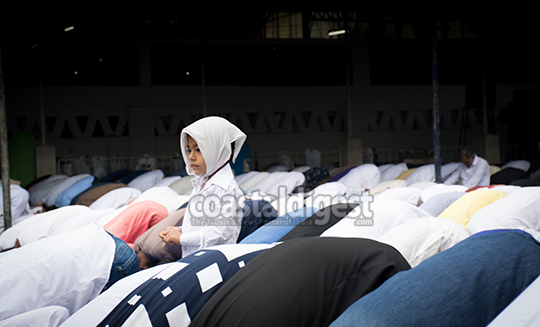
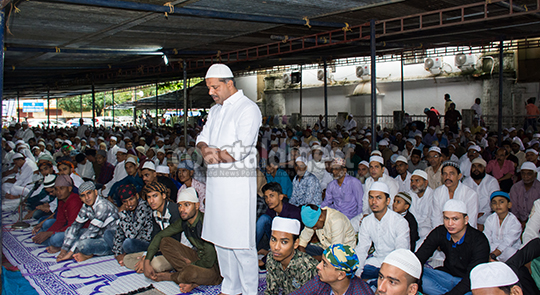
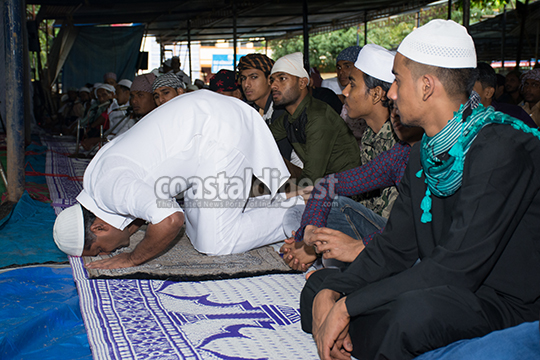
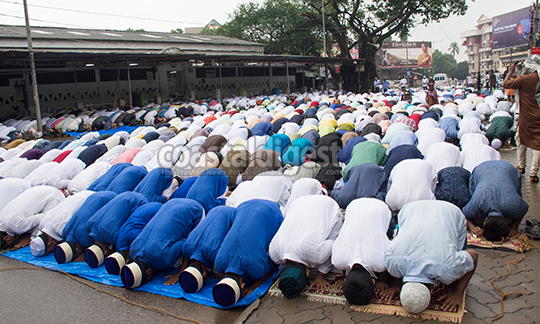
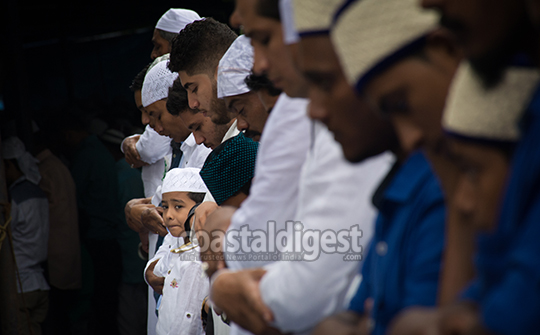
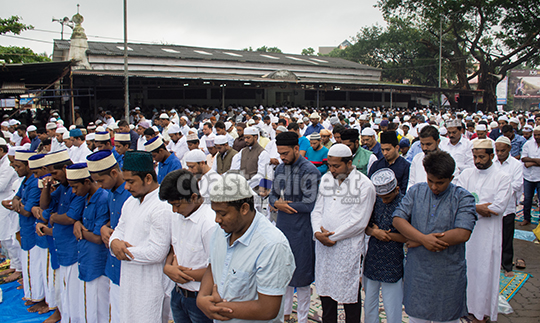
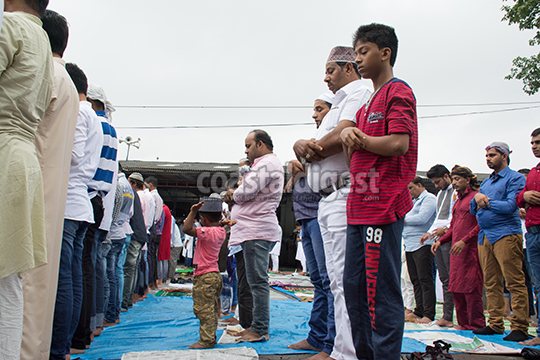
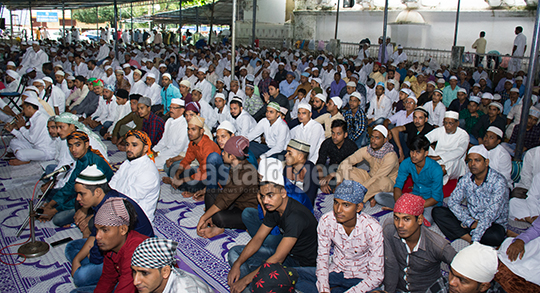
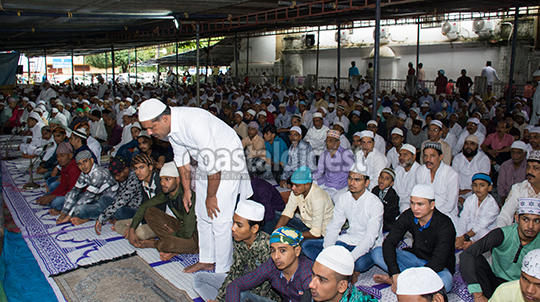
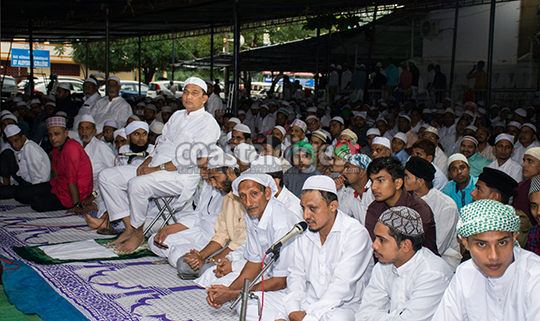
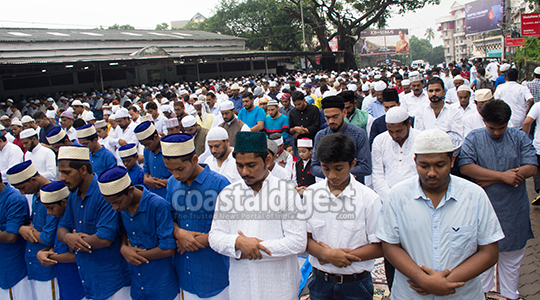
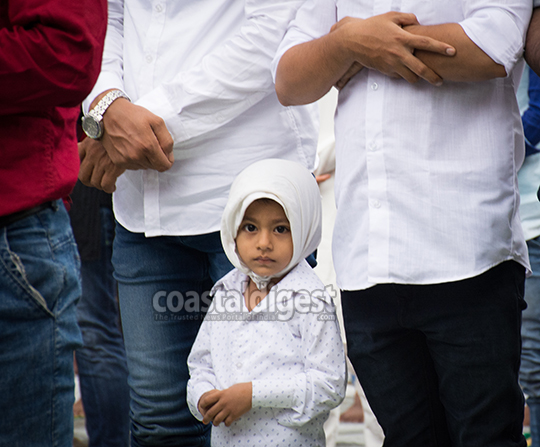
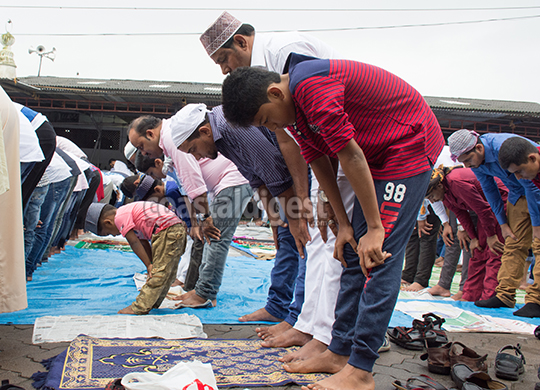
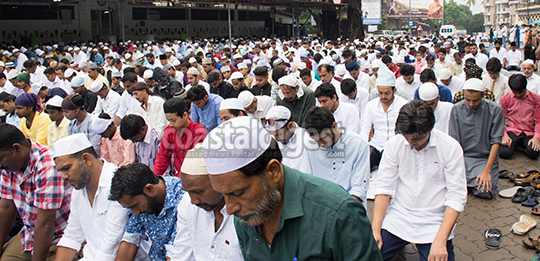


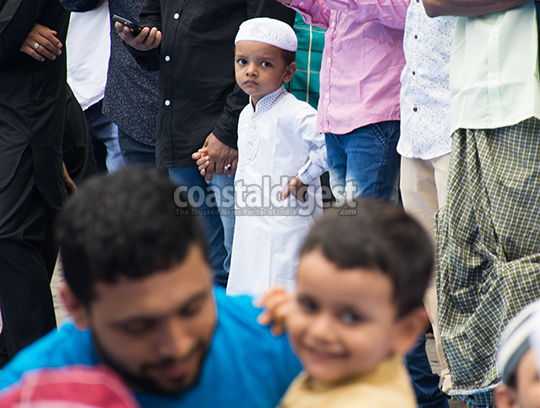
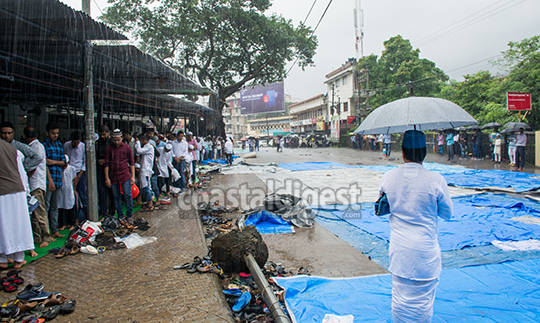
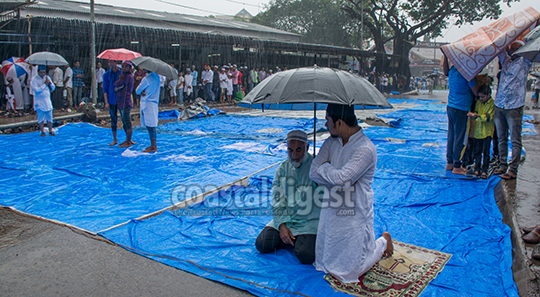
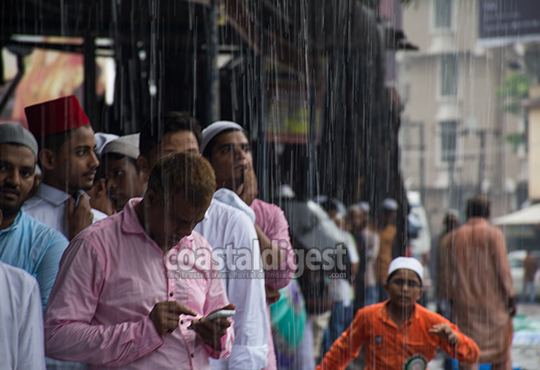
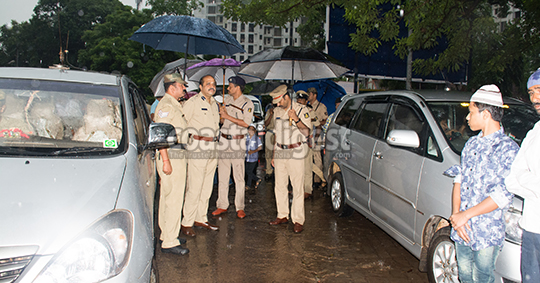
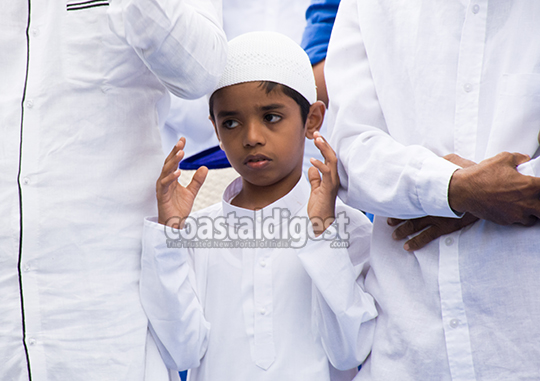

Comments
ASSALAMU ALAIKUM.
DEAR MUSLIM BROTHERS & SISTERS, ALSO ALL THE FAITH FOLLOWERS HAPPY EID MUBARAK TO YOU ALL. MAY ALLAH ACCEPT ALL OUR GOOD DEADS DURING THE RAMADHAN. TAQQABALL ALLAHU VA MINNA VA MINKUM.
???????? ?????? ????? ??????? ????? ?????? ?????????? ??? ??? ??????? ? ????????? .....????? ?????
Add new comment